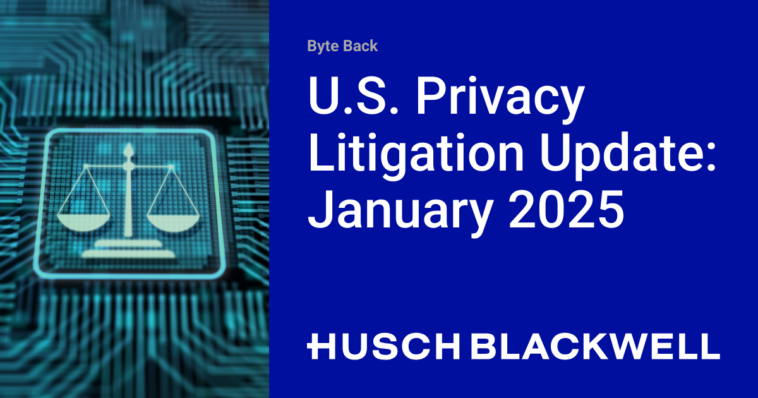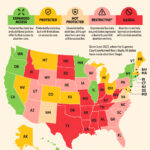
Deciphering The Tangled Issues of Privacy Litigation: January 2025
Looking into the recent trends in the world of privacy litigation in the United States gives some insights into the intimidating experiences from court decisions made in January 2025.
Digging into Website Privacy Policies
A few courts have hinted that a plaintiff might have consented to so-called “wiretapping” via a website’s privacy policy, providing the defendant can convincingly establish that the understanding was implicit. This becomes overwhelming when website operators don’t require users to indicate consent explicitly, usually through a browser wrap agreement. However, in two separate cases, the courts identified that defendant companies hadn’t presented adequate information to establish consent, rejecting arguments based on privacy policy consent.
Mixed Responses to Vendor Statements
The courts tend to differ in their approach when considering statements from third-party vendors on whether they qualify for the “party exception” in a wiretapping claim. These decisions often rest on a fine-line; whether a third party can reap the benefits of the information, akin to someone eavesdropping on a conversation, or the third party is merely acting as a tool for the defendant, similar to a tape recorder.
The Survival of Tap & Trace Claims
Even with the little twists individual cases bring, Tap and Trace claims under Section 638.51 of California’s Penal Code have consistently made it past the majority of dismissal motions. Even in cases where the ruling doesn’t specifically mention the TikTok pixel, a primary offender in these suits, courts continue to uphold this part of the California code.
VPPA Interpretation and Scope
Courts appear to now rely on the precedent set by the Salazar v. National Basketball Association decision, which expanded the Video Privacy Protection Act’s (VPPA) applicability. With a lowered burden on VPPA plaintiffs at the dismissal motion stage, defendants facing VPPA claims are finding the interpretation of the term “video tape service provider” under the VPPA as broad, including websites and streaming services that deliver online video content to consumers. However, there remains a hard limit.
The Plight of Spy Pixels’ Litigations
While the world of privacy law always teems with full-of-problems scenarios, one of the more recent has been spy pixel cases. Recent cases have not fared well, especially in a recent Arizona case that was dismissed on the basis of lack of standing, with the court stating that a violation of the “spy pixel” law does not immediately establish harm. This kind of ruling demonstrates the challenging nature of privacy litigation.
Working Through Today’s Privacy Litigation Landscape
As privacy lawsuits continue to burst onto the scene through ever-changing digital landscapes, understanding the subtle details of these legal battles is critical. Whether it’s deciphering the tricky parts of violation claims based on websites’ chat services, grappling with session replay technology claims, or figuring out a path through wiretapping laws, it is essential we keep questioning, analyzing, and learning along the way. With every court ruling, we gain further insight into the nitty-gritty of data privacy litigation – knowledge that will prove essential in the battles to come. The ever-evolving legal landscape underlines the critical role of staying informed on this super important subject.
Originally Post From https://www.jdsupra.com/legalnews/u-s-privacy-litigation-update-january-5218524/
Read more about this topic at
Analyzing Privacy Litigation Trends: Emerging Legal Patterns – Law …


